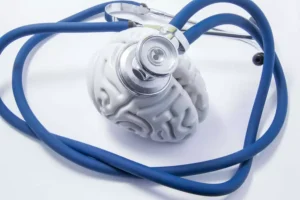
Then, the nerves send a message to the medulla, which is part of the brain stem. The medulla controls essential involuntary functions like breathing, blood pressure, and heart rate. “When our upper airway, especially our nose, senses a foreign substance that is potentially harmful, we sneeze in response to expel the substance back out,” said Dr. Purkey. While there is no direct relationship between alcohol and hair loss, heavy drinking may lead to other issues that thin out your locks. Hence, drinking before bed can cause sleep disruptions later in your sleep cycle and lead to insomnia symptoms over time. Because alcohol is a potent diuretic, it can quickly dehydrate you, leading to the characteristic symptoms of a hangover, including a throbbing headache.

Drink Less Alcohol : Learn how to moderate with no pressure to quit
Ask your doctor for more information about your diagnosis and treatment options. Red wine tends to have higher levels of histamine than white wine or beer. We use a pharmacist-formulated blend of Glutathione, Dihydromyricetin, Cysteine, L-Theanine, & B Vitamins to stop alcohol flushing before it can begin. If you’ve ever wondered – why does my face get red when I drink – this could be why. Alcohol intolerance occurs when your body doesn’t have the proper enzymes to break down (metabolize) the toxins in alcohol. This is caused by inherited (genetic) Oxford House traits most often found in Asians.
Common Sneezing Causes and Triggers

A hangover is a group of unpleasant symptoms that can happen after drinking too much alcohol. As if feeling awful weren’t bad enough, frequent hangovers also are linked with poor performance and conflict sneezing when drunk at home, school and work. One in three people can make themselves sneeze by looking at a bright light. Researchers aren’t exactly sure how photic sneezing occurs. Some think it happens when a light source stimulates a branch of your parasympathetic nervous system.
- This is likely because wine contains histamines, which trigger allergies.
- It’s possible that some chemicals in wine and how the body responds to them could result in a headache after drinking wine.
- The immune system overreacts to this exposure in the body, treating alcohol as a threat.
- Rarely, severe pain after drinking alcohol is a sign of a more serious disorder, such as Hodgkin’s lymphoma.
Can you suddenly develop an alcohol allergy?

When it comes to drinking, there’s a big difference between feeling tipsy and having symptoms of alcohol intolerance. The former is when you get a little loosey-goosey at the bar; the latter is more like you feel sick after sipping on a glass of wine while relaxing at home. Shaw says symptoms may affect the skin, breathing and circulatory system. “They may also be accompanied by a red rash, swelling to the eyes, lips, face, breathing difficulties, stomach upset, feeling dizzy or faint due to low blood pressure,” she adds. “Allergic conditions may be genetic but, can happen in people with no family history too.” However, a person is usually allergic or intolerant to certain ingredients in the drink, rather than the alcohol itself.
Some people have a headache a few hours after drinking wine — especially red wine. But it’s different from a hangover, which may or may not include a headache. It’s possible that some chemicals in wine and how the body responds to them could result in a headache after drinking wine. More research is needed to find the exact cause of wine headache. Stress and other strong emotions can even trigger sneezing.
People who have a true alcohol allergy should avoid drinking alcohol entirely. Alcohol intolerance can cause immediate, uncomfortable reactions after you drink alcohol. The most common signs and symptoms are stuffy nose and skin flushing. “Alcohol intolerance is a way of your body informing you that it is rejecting what is being put in it to process,” Sheila Shilati, PsyD, COO of rehab facility Seasons, tells Bustle. The best treatment of allergies is to avoid the substance that triggers a reaction wherever possible.
But most of the time, it just means your body is protecting itself. If sneezing interferes with your quality of life, or if you develop additional symptoms like fever, congestion or sore throat, it might be time to call your healthcare provider. If you have strange symptoms soon after drinking, your body may not be processing alcohol properly.

What are the possible causes of alcohol allergy?
- We will also look at what causes alcohol allergies and review the differences between alcohol allergy and intolerance.
- The blood vessels around your nasal cavity can expand, making it a bit more difficult to breathe normally.
- An alcohol allergy can occur when a person with an alcohol allergy comes into contact with alcohol, which is also known as ethanol.
- Have you ever gotten a stuffy nose after a glass of red wine?
- Often, what people consider to be an alcohol allergy is, in fact, alcohol intolerance.
If you’ve ever had to nurse a hangover, nausea and vomiting are commonly part and parcel of the ordeal. While throwing up can make you feel miserable, it is one of your body’s self-defense mechanisms to remove excess toxins from the alcohol consumed. If you’ve noticed consistent weight gain, it may be time to reflect on your drinking habits. If you’re not consciously keeping track of the drinks you’ve chugged, it’s easy to go over these limits. According to the CDC, moderate drinking is defined as having two standard drinks or less per day for men and one drink or less per day for women. For some of us, half a dozen drinks during a night out aren’t yet enough to faze us.
Alcohol allergy: all the signs to look out for (including going red when you drink)
These give many types of alcoholic beverages their taste and smell. Congeners are found in larger amounts in dark liquors, such as brandy and bourbon, than in clear liquors, such as vodka and gin. Hangovers after a single night’s drinking go away on their own. Talk with your healthcare professional if you’re concerned that frequent heavy drinking may lead to serious problems, such as alcohol withdrawal.